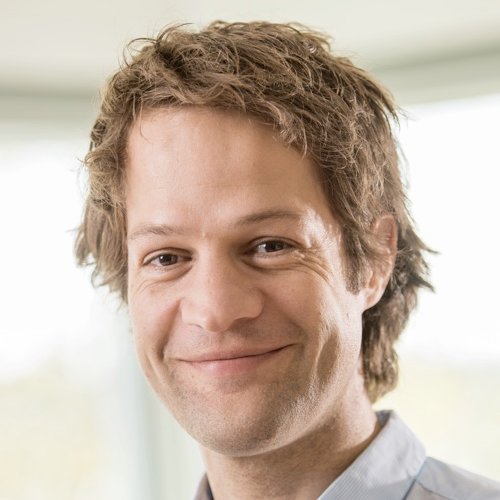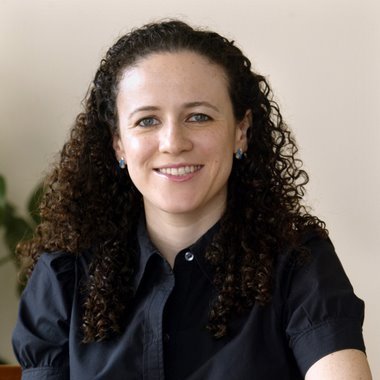Accepted Submissions
Contributed Talks
Paper 20: Geoff Fudenberg, David R Kelley and Katherine S Pollard. Predicting 3D genome folding from DNA sequence
[paper]
[slideslive]
Paper 11: Guillaume Jaume, Pushpak Pati, Antonio Foncubierta Rodriguez, Jean-Philippe Thiran, Orcun Goksel and Maria Gabrani. Towards Explainable Graph Representations in Digital Pathology
[paper]
[slideslive]
Paper 29: Minxing Pang and Jesper Tegnér. Representation Learning and Translation between the Mouse and Human Brain using a Deep Transformer Architecture
[paper] [Live only]
Paper 44: Jacob C. Kimmel and David R. Kelley. scNym: Semi-supervised adversarial neural networks for single cell classification
[paper]
[slideslive]
Spotlights & Posters
Paper 8: Neha Prasad, Karren Yang and Caroline Uhler. Optimal Transport using GANs for Lineage Tracing
[paper]
[poster]
[slideslive]
Paper 16: Lingfei Wang, Jacques Deguine and Ramnik Xavier. Normalisr: inferring single-cell differential and co-expression with linear association testing
[poster]
[slideslive]
Paper 17: Kexin Huang. scGNN: scRNA-seq Dropout Imputation via Induced Hierarchical Cell Similarity Graph
[paper]
[poster]
[slideslive]
Paper 37: Leander Dony, Martin Koenig, David S. Fischer and Fabian J. Theis. Variational autoencoders with flexible priors enable robust distribution learning on single-cell RNA sequencing data
[paper]
[poster]
[slideslive]
Paper 41: Mohammad Lotfollahi, Leander Dony, Harshita Agarwala and Fabian Theis. Out-of-distribution prediction with disentangled representations for single-cell RNA sequencing data
[paper]
[poster]
[slideslive]
Paper 2: Kathleen Lois Foster and Alessandro Maria Selvitella. Learning the locomotion behaviour of lizards transfers across environments
[paper]
[poster]
[slideslive]
Paper 23: Jacob Schreiber, Yang Young Lu and William Stafford Noble. Ledidi: Designing genome edits that induce functional activity
[paper]
[poster]
[slideslive]
Paper 46: Nic Fishman, Avanti Shrikumar, Georgi Marinov and Anshul Kundaje. Systematic characterization of generative models for de novo design of regulatory DNA
[paper]
[poster]
[slideslive]
Paper 49: Alexander Karollus, Ziga Avsec and Julien Gagneur. Predicting Mean Ribosome Load for 5’UTR of any length using Deep Learning
[poster]
[slideslive]
Paper 51: Pinar Demetci, Rebecca Santorella, Bjorn Sandstede, William Stafford Noble and Ritambhara Singh. Gromov–Wasserstein Optimal Transport to Align Single-Cell Multi-Omics Data
[paper]
[poster]
[slideslive]
Posters
Paper 35: Ramon Viñas, Tiago Azevedo, Eric Gamazon and Pietro Liò. Gene Expression Imputation with Generative Adversarial Imputation Nets
[paper]
[poster]
Paper 5: Kyohei Koyama, Kotaro Kamiya and Shion Honda. Cross Attentive Antibody-Antigen Interaction Prediction with Multi-task Learning
[paper]
[poster]
Paper 7: Michal Rozenwald, Aleksandra Galitsyna, Mikhail S. Gelfand and Ekaterina Khrameeva. DNA folding features prediction with Recurrent Neural Networks using epigenetic data
[paper]
[poster]
Paper 18: John Halloran and David Rocke. GPU-Accelerated SVM Learning for Extremely Fast Massive-Scale Proteomics Classification
[paper]
[poster]
Paper 47: Jun Cheng, Muhammed Hasan Çelik, Anshul Kundaje and Julien Gagneur. MTSplice predicts effects of genetic variants on tissue-specific splicing
[paper]
[poster]
Paper 53: Jannis Born, Matteo Manica, Joris Cadow, Greta Markert, Nil Adell Mill, Modestas Filipavicius and Maria Rodriguez Martinez. PaccMannRL on SARS-CoV-2: Designing antiviral candidates with conditional generative models
[paper]
[poster]
Paper 58: Mara Finkelstein, Avanti Shrikumar and Anshul Kundaje. Look at the Loss: Towards Robust Detection of False Positive Feature Interactions Learned by Neural Networks on Genomic Data
[paper]
[poster]
Paper 66: Gherman Novakovsky, Manu Saraswat, Oriol Fornes and Wyeth Wasserman. Biologically-relevant transfer learning improves transcription factor binding prediction
[paper]
[poster]
Paper 67: Tanishq Abraham, Andrew Shaw, Daniel O'Connor, Austin Todd and Richard Levenson. Slide-free MUSE Microscopy to H&E Histology Modality Conversionvia Unpaired Image-to-Image Translation GAN Models
[paper]
[poster]
Paper 63: Tariq Daouda, Reda Chhaibi, Prudencio Tossou and Alexandra-Chloé Villani. Auto-encoders with fibered latent spaces: A geometric approach to batch correction
[paper]
[poster]
Paper 9: Bastian Rieck, Tristan Yates, Guy Wolf, Nicholas Turk-Browne and Smita Krishnaswamy. Topological Methods for fMRI Data
[paper]
[poster]
Paper 13: Seojin Bang and Heewook Lee. Identification of Epitope-TCR Binding Using A Generative Adversarial Network Model
[paper]
[poster]
Paper 15: Kexin Huang, Tianfan Fu, Cao Xiao, Lucas Glass and Jimeng Sun. DeepPurpose: a Deep Learning Based Drug Repurposing Toolkit
[paper]
[poster]
Paper 26: Edward Lee, Jiangdian Song, Hongmei Wang, Wei Zhang, Jimmy Zheng, Michelle Han, Jayne Seekins, Simon Wong, Kexue Deng and Kristen Yeom. Using deep learning on chest CT to track COVID-19 patients
[poster]
Paper 28: Larisa Morales-Soto, Juan P. Bernal-Tamayo, Robert Lehman, Balsamy Subash, Xabier Martinez-de-Morentin, Amaia Vilas-Zornoza, Patxi San-Martin, David Lara, Felipe Prosper, David Gomez-Cabrero, Narsis Kiani and Jesper Tegner. Deriving Cell Type-Specific Directed Weighted Signed Regulatory Networks from Single-Cell RNA Sequencing Data
[paper]
[poster]
Paper 31: Younhun Kim, Sawal Acharya, Daniel Alfonsetti, Georg Gerber, Bonnie Berger and Travis Gibson. ChronoStrain: Sequence quality and time aware strain tracking with shotgun metagenomic data
[poster]
Paper 36: Mohammad Sadegh Akhondzadeh, Alireza Omidi, Zeinab Maleki, Kevin R. Coombes, Amanda E. Toland and Amir Asiaee. Learning Cancer Progression Network from Mutation Allele Frequencies
[paper]
[poster]
Paper 34: Stephen Malina, Daniel Cizin and David Knowles. Determining causal interactions learned by genomic DL models with in silico mutagenesis and Mendelian randomization
[poster]
Paper 38: Russell Kunes, Siyu He, Yang Xiao, Simon Tavare and David Knowles. Supervised Tumor Cell Subtype Identification via SCAN
[paper]
[poster]
Paper 48: Junil Kim, Simon Toftholm Jakobsen, Kedar Nath Natarajan and Kyoung Jae Won. TENET: Gene network reconstruction using single cell transcriptomic data \\ reveals key factors for embryonic stem cell differentiation
[paper]
[poster]
Paper 60: Ehsaneddin Asgari, Philipp Muench, Till-Robin Lesker, Alice C. Mchardy and Mohammad R. K. Mofrad. Data-driven Variable-length Segmentation of Biological Sequences: Applications in Proteomics and Metagenomics
[paper]
[poster]
Paper 68: Sisi Qu, Mengmeng Xu, Bernard Ghanem and Jesper Tegner. Learning Heat Diffusion for Network Alignment
[paper]
[poster]
Paper 69: Aditya Jadhav and Manikandan Narayanan. Identifying cross-tissue signaling between genes from biomedical literature
[poster]
Highlights of Published Work
Paper 3: Sanjiv Dwivedi, Andreas Tjärnberg, Jesper Tegnér and Mika Gustafsson. Deriving Disease Modules from the Compressed Transcriptional Space Embedded in a Deep Autoencoder
[paper]
[slideslive]
Paper 4: Iman Deznabi, Büşra Arabacı, Mehmet Koyuturk and Oznur Tastan. DeepKinZero: Zero-Shot Learning for Predicting Kinase-Phosphosite Associations
[paper]
[slideslive]
Paper 14: Christian Matek, Simone Schwarz, Karsten Spiekermann and Carsten Marr. A publicly available database for developing machine learning applications to differentiate leukocytes and recognise malignant cells in peripheral blood
[paper]
[slideslive]
Paper 21: Serghei Mangul, Igor Mandric and Jeremy Rotman. Profiling immunoglobulin repertoires across multiple human tissues using RNA Sequencing
[paper]
[slideslive]
Paper 22: Shibiao Wan, Junil Kim and Kyoung Jae Won. Hyper-fast and accurate clustering of ultra-large-scale single-cell data with ensemble random projection
[paper]
[slideslive]
Paper 57: Nova Smedley, Suzie El-Saden and William Hsu. Discovering and interpreting transcriptomic drivers of imaging traits using neural networks
[paper]
[slideslive]
Paper 6: Jacob Schreiber and William Stafford Noble. Learning a latent representation of human genomics using Avocado
[paper]
[slideslive]






